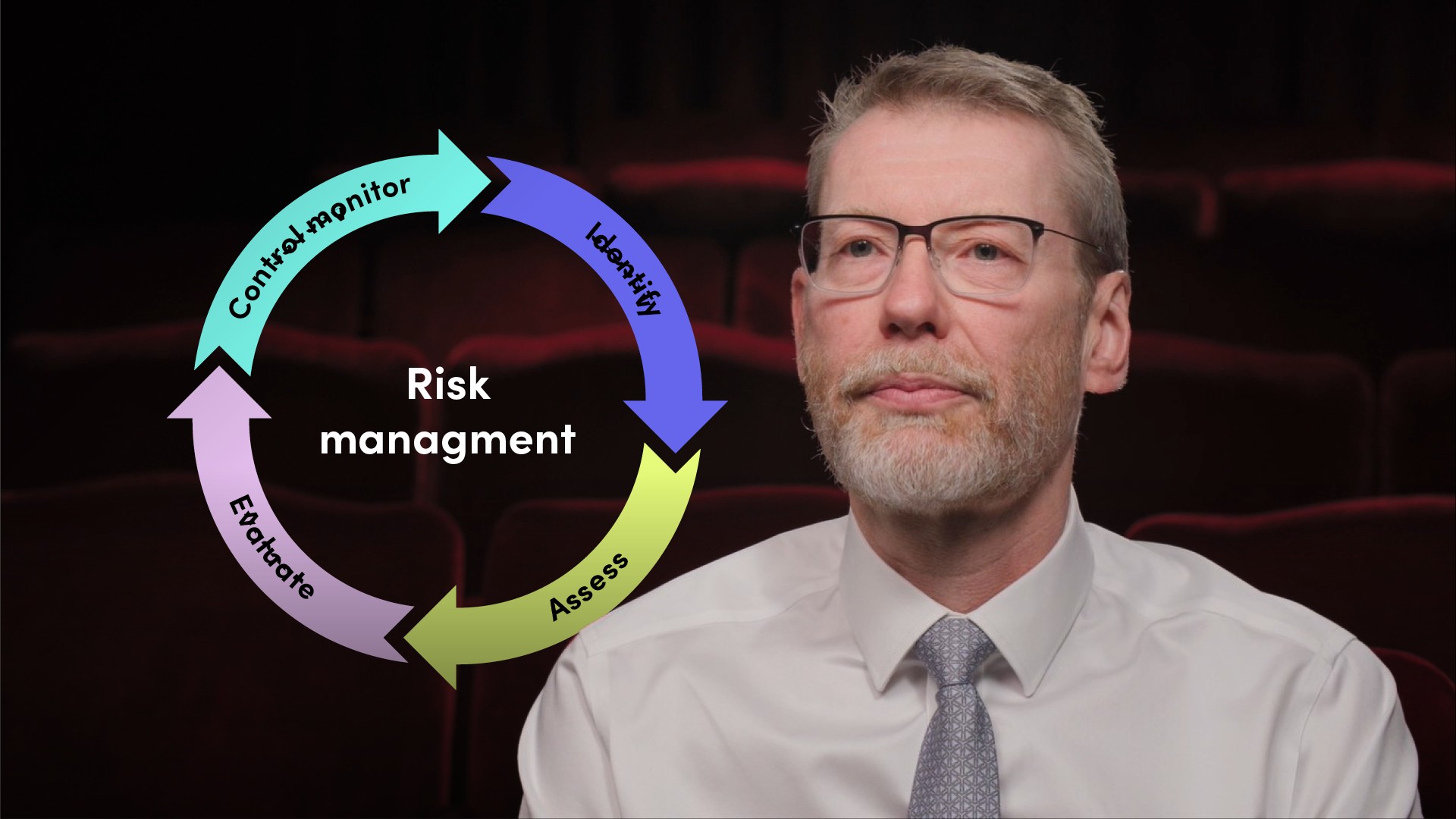
Risk Management Introduction

Hans-Kristian Bryn
35 years: Strategic risk management and governance
In the first video of his series on risk management, Hans addresses a range of related topics that address different types of risks and why risk management is not a 'nice to have' but a 'need to have' for businesses. He also introduces how to categorise risks impacting businesses, from external risks to strategic and operational risks.
In the first video of his series on risk management, Hans addresses a range of related topics that address different types of risks and why risk management is not a 'nice to have' but a 'need to have' for businesses. He also introduces how to categorise risks impacting businesses, from external risks to strategic and operational risks.
Subscribe to watch
Access this and all of the content on our platform by signing up for a 7-day free trial.

Risk Management Introduction
13 mins 5 secs
Key learning objectives:
Define risk management
Identify the key risk management activities
Understand why there is an increased focus on risk management
Overview:
Enhanced risk management is a need not a nice to have. Done correctly, the benefit to the organisation far outweighs the cost and process involved, provided that the organisation focuses on value protection and value enhancement rather than compliance only.
Subscribe to watch
Access this and all of the content on our platform by signing up for a 7-day free trial.
What is Risk Management?
The ISO 31000 states that:
Risk Management is the process which aims to help organisations understand, evaluate and take action on their risks with a view to increasing the probability of their success and reducing the likelihood of failure.
In the UK, The Financial Reporting Council defines Principal Risks as:
A risk or combination of risks that can seriously affect the performance, future prospects or reputation of the entity. These should include those risks that would threaten its business model, future performance, solvency or liquidity.
What are the key risk management activities?
- Step 1 - Risk identification - what are the key risks facing the business?
- Step 2 - Risk assessment / quantification - how important is the risk or what impact could the risk have on our business?
- Step 3 - Risk management / mitigation - what management actions can we take to bring the risk to an acceptable level?
- Step 4 - Risk reporting - what is the level of risk, velocity, effectiveness of management and mitigation?
Why is there increased focus on risk management?
Prior to Covid, Boards were increasingly concerned with how the impact of unforeseen or unmanaged risks could harm their business. Many organisations have discovered that their investments or strategy decisions did not result in the performance boost that they had anticipated.
One of the numerous reasons for this is that the economic and political environment in which we make decisions has grown more unpredictable. VUCA is a term that has found its way from the military to the boardroom. It stands for Volatility, Uncertainty, Complexity, and Ambiguity. When faced with growing VUCA, having a clear process for recognising and analysing risks becomes even more crucial.
What are the decisions that merit enhanced risk analysis
- Business model optimisation
- Investments and divestments
- Market entry
- Product strategy
- M&A
- JV partner selection
- Customer proposition
- Cost optimisation
- Channel strategy
What value can be generated from better risk management?
Risk management can provide tangible value:
- Defensively - A structured risk management process can protect value by understanding and managing exposures better to avoid unwanted volatility.
- Proactively - The risk management process can support the organisation in enhancing value by increasing clarity of risk appetite, and incorporating risk-return considerations in planning and decision-making.
Subscribe to watch
Access this and all of the content on our platform by signing up for a 7-day free trial.

Hans-Kristian Bryn
There are no available Videos from "Hans-Kristian Bryn"





























